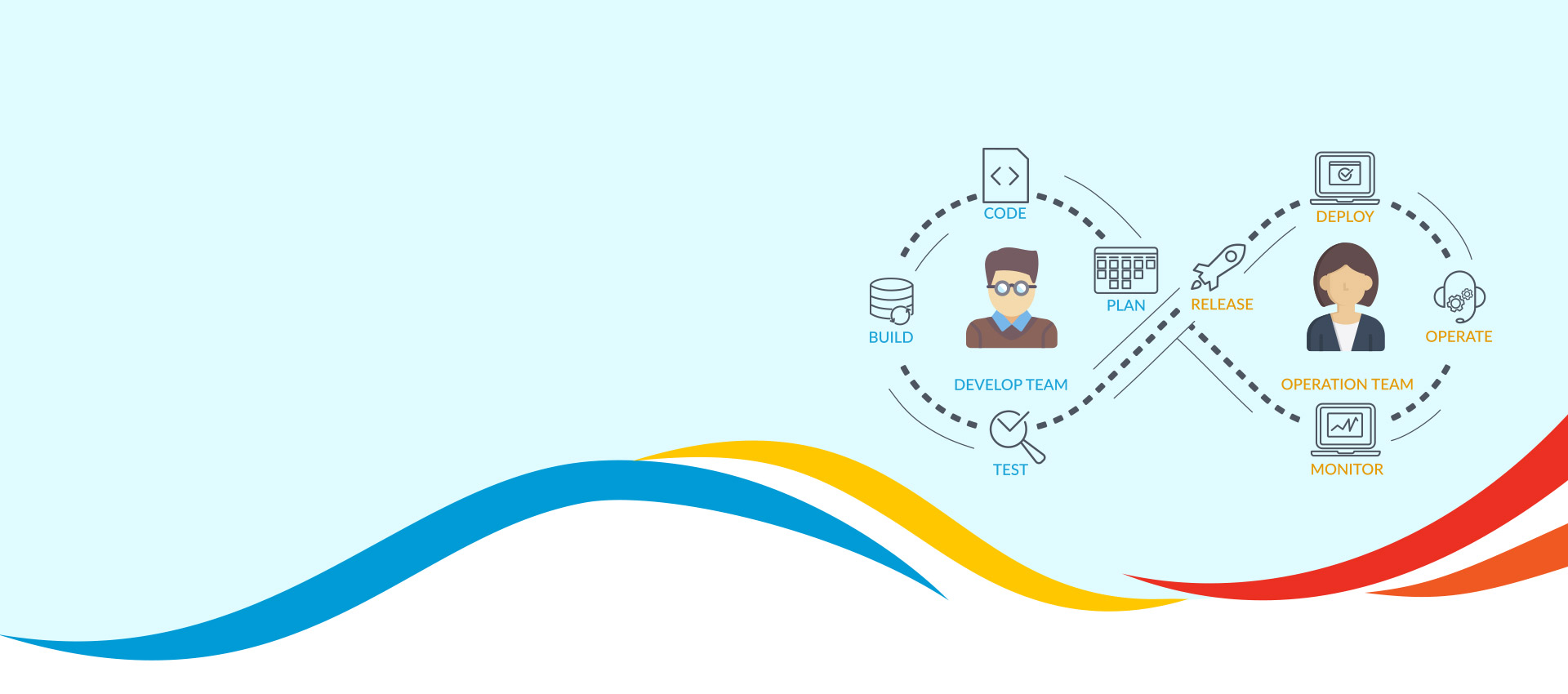Get Appointment
- contact@wellinor.com
- +(123)-456-7890

Agile and DevOps
Agile, in a dictionary, will make it sound like an adjective. But in the real battles that today’s enterprises are fighting, not just with disruptors but also with new-age customers, it is definitely – A verb.
You have to do it, to be it.
Agile is not just a new approach to development or a programming shift or a tool-tinkering toy. It is an entirely fresh way that redefines how one thinks about experiences and ways to deliver them. In an agile context, applications cease to be boxed. They become vehicles, fast and fierce, of experiences and customer delight.
In a hyper-competitive, ever-dynamic and incredibly-volatile world, an enterprise has to be agile to stay in the game. It is about collaboration, being in the nick of time, capabilities, assets and accelerators; but above all, it is never-ending and never-enough.

What We Offer
We have a slew of services as well as product offerings that cater to the new and hard-to-put-a-finger-on needs that this new landscape makes you struggle with.






FAQs
What is agile services?
Agile Transformation Services is a collection of products and services developed and offered by an Agile Transformation Company that hires or collaborates with a team of experts, Agile Transformation Consultants, who work with the Company to create a Shall develop a tailored Agile Transformation Program.
How can devops accelerate applications and services delivery?
DevOps accelerate application and service delivery by increasing business revenue by bringing IT and development teams to work together. The right DevOps strategy and its successful implementation help to streamline the end-to-end delivery pipeline.
It helps to develop and launch cutting-edge features or goods quickly to live up to high standards of quality and timeliness set by their customers. Companies can acquire feedback and begin learning again for improvement more quickly if the product is released into the market earlier.
What are the key challenges in adopting devops services?
The challenges in implementing DevOps that companies are likely to face are as follows:
1. Moving to a newer microservices architecture does enable faster development and innovation, but it increases complexity.
2. Adopting new tools and integrating them requires adequate training
3. Integrating the tools of different domains can suffer challenges to work collaboratively.
What is the best practices and benefits of devops services?
The best practices and benefits of DevOps services are as follows:
1. DevOps helps achieve seamless collaboration between teams to eliminate silos between departments and business units and create proper communication, transparency, and trust among team members.
2. It helps in the quick identification of defects or weaknesses. Any DevOps transformation plan can be implemented quickly and successfully on the ground because most monitoring tools can run seamlessly across cloud or on-premises infrastructure.
3. The service of Infrastructure as a Code has the capability of recreating the digital infrastructure every time applied. Automation helps to eliminate the need for manually provisioning servers, storage, database connections, operating systems, and other elements.
What is devops services?
DevOps as a Service can be attractive to businesses without internal DevOps experience or the funds to hire or educate personnel with such skills. The difficulties of managing the flow of data and information up and down the tool chain are also hidden by this strategy. Different people and teams involved in the DevOps process can use intuitive interfaces to access the parts of the tooling they need, without needing to be familiar with the inner workings of the entire toolchain.
What is the difference between agile and devops?
The key differences between DevOps and Agile are as follows:
1. DevOps is a practice that unites development and operations teams, while Agile is an iterative strategy that emphasizes cooperation, customer feedback, and small, rapid releases.
2. The Agile process focuses on ongoing changes, whereas DevOps emphasizes continuous testing and delivery.
3. Agile demands a small team, but DevOps requires a somewhat large team.
4. Agile, on the other hand, makes use of the shift-right principle whereas DevOps makes use of both shifts left and right.
5. Agile’s focus is on software development, but DevOps’ focus is on end-to-end business solutions and quick turnaround.
6. Agile places more of a focus on functional and non-functional preparation than DevOps does on operational and business readiness.
Which technology when combined with agile and devops enhance delivery capacity?
By integrating DevOps with hybrid Cloud architecture and adopting Agile development practices, organizations may quicken the pace of software development, deployment, and innovation.
All facets of the company’s IT environment may be operated using virtualization technology, giving businesses the flexibility to expand resources to maximize both Agile development and DevOps operations.
Adopting Agile development methodology is a prerequisite for implementing DevOps to boost efficiency and innovation, and Agile development necessitates shorter release cycles more frequently.
How are companies using devops and agile in itsm?
Here is how companies are using DevOps and Agile in ITSM:
1. For Streamlining Processes
2. For ensuring Continuous Delivery
3. For Feedback and Process Integration
4. For Software Testing and Quality Analysis at every step
5. For Enhanced Collaboration

